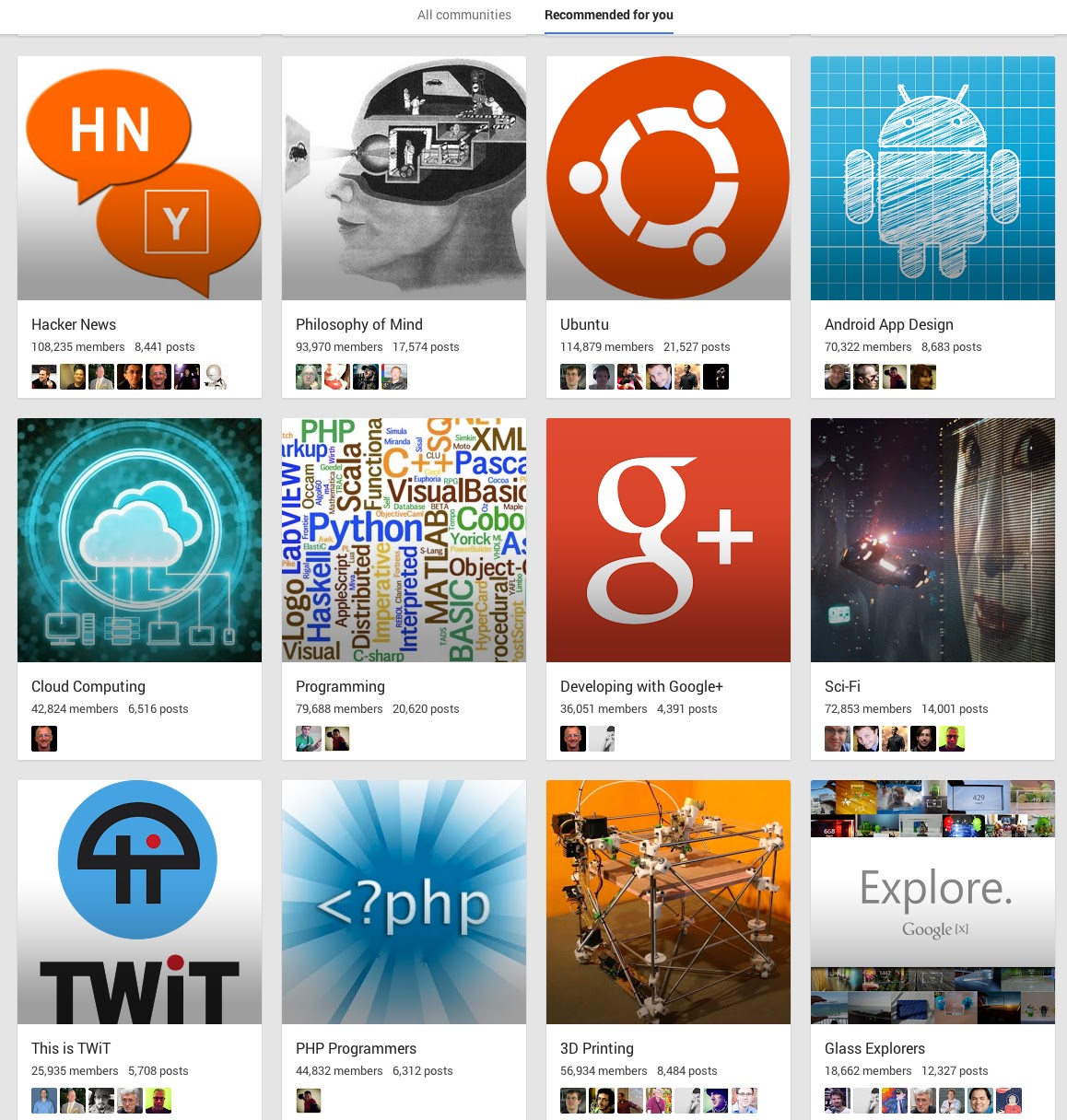For the past couple of months I have had quite a busy off-line work/life situation. Sad to say, I've had little time to tinker with code, write blog posts, keep up with my tech journals (the short stack is now growing into a little pile), and attend to the people I follow on the web.
I'm not totally off the grid.
While walking my dog, I check Twitter, Facebook, and Instagram, peek at my email. To be social, I quickly retweet, "like", comment, or post a pic from time-to-time.
Things just aren't the same.
Google noticed.
I hadn't been checking my Analytics account, and Google let me know. I hadn't been nurturing my blog as in the past, and I guess this was a cause for concern. I was amused that Google was prepared to delve deeper with short survey!
Yes, Google, I have been neglecting you.
Although I regularly check Facebook, I ignored the Google Plus world. So today, I decided to take a few steps to get back on track.
I saw that a number of people had added me to their circles. I added a few back.
I noticed that many people shared similar interests in technology, and sighed, longing for the days when I was taking interesting graduate computer courses and happily working on innovative projects.....
I perked up when I noticed that Google Plus had a "recommended communities" feature.
I was curious. What sort of communities would be in store for me? Could Google really read my ming?! : }
Well, maybe. Almost.
And I am thankful.
This was the nudge I needed - a huge rabbit hole for me to explore:
There were more communities to consider, but scanning through the recommendations, I could see that Google was pretty much on-target regarding the technology interests.
Google was off a bit regarding my educational and assistive technology interests, which I'd expect to see represented in the array.
I'm still a school psychologist in my "day" job. Early retirement is an option for me someday. When I do, I know I will devote more TLC to my NUI/interactive multimedia tech-related passions.
Google, now you know!
RELATED
Google+ Communities
Join a Google+ Community
Google launches restricted Google+ communities to let businesses make conversations private or invite-only. Emil Protalinski, The NextWeb, 11/5/13
Google Plus Communities-Complete User Guide
Martin Shervington, Are you commoogling, 3/6/13
I'm not totally off the grid.
While walking my dog, I check Twitter, Facebook, and Instagram, peek at my email. To be social, I quickly retweet, "like", comment, or post a pic from time-to-time.
Things just aren't the same.
Google noticed.
I hadn't been checking my Analytics account, and Google let me know. I hadn't been nurturing my blog as in the past, and I guess this was a cause for concern. I was amused that Google was prepared to delve deeper with short survey!
Yes, Google, I have been neglecting you.
Although I regularly check Facebook, I ignored the Google Plus world. So today, I decided to take a few steps to get back on track.
I saw that a number of people had added me to their circles. I added a few back.
I noticed that many people shared similar interests in technology, and sighed, longing for the days when I was taking interesting graduate computer courses and happily working on innovative projects.....
I perked up when I noticed that Google Plus had a "recommended communities" feature.
I was curious. What sort of communities would be in store for me? Could Google really read my ming?! : }
Well, maybe. Almost.
And I am thankful.
This was the nudge I needed - a huge rabbit hole for me to explore:
There were more communities to consider, but scanning through the recommendations, I could see that Google was pretty much on-target regarding the technology interests.
Google was off a bit regarding my educational and assistive technology interests, which I'd expect to see represented in the array.
I'm still a school psychologist in my "day" job. Early retirement is an option for me someday. When I do, I know I will devote more TLC to my NUI/interactive multimedia tech-related passions.
Google, now you know!
RELATED
Google+ Communities
Join a Google+ Community
Google launches restricted Google+ communities to let businesses make conversations private or invite-only. Emil Protalinski, The NextWeb, 11/5/13
Google Plus Communities-Complete User Guide
Martin Shervington, Are you commoogling, 3/6/13







